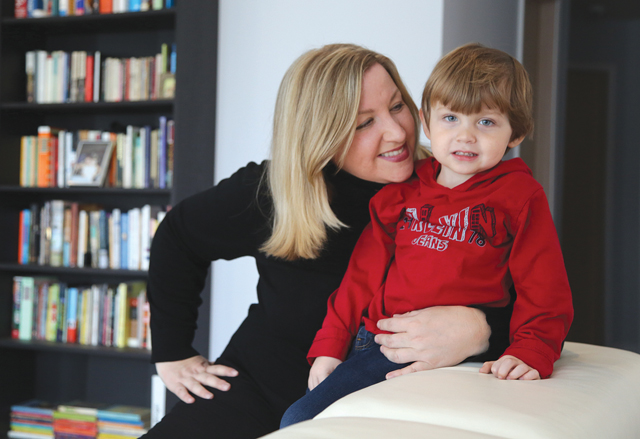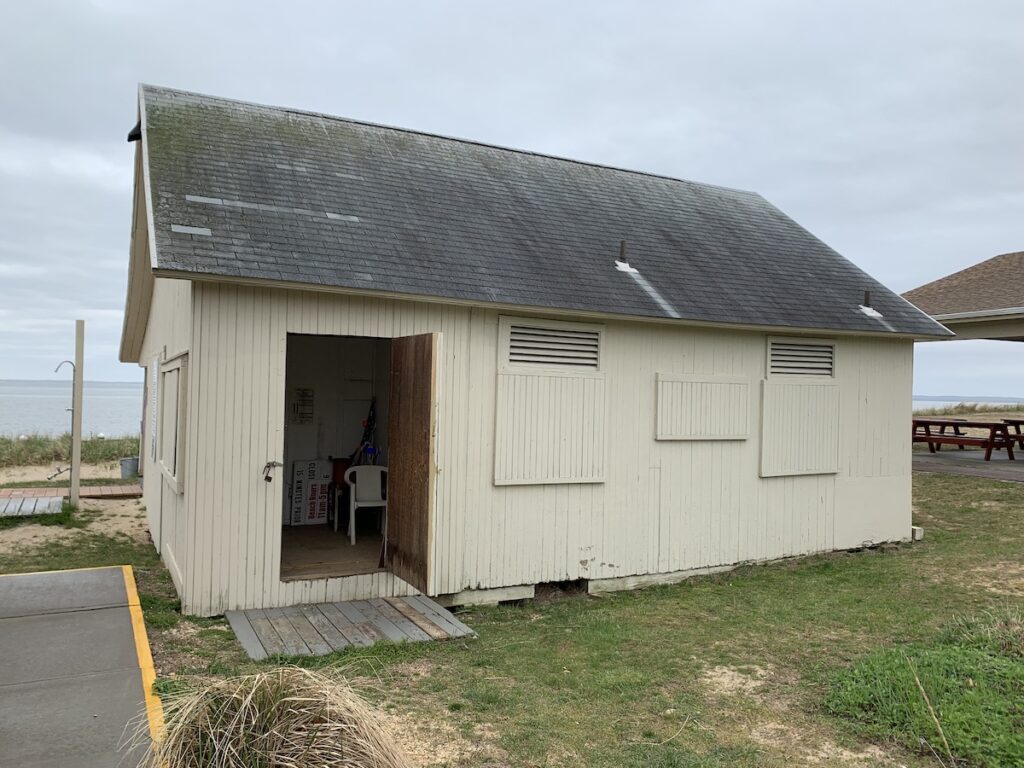Mattituck mother, colon cancer survivor advocates for early screening

Donna Farley was 28 weeks pregnant with her third child in 2013, when she noticed that something was different this time — and not in a good way.
Ms. Farley was experiencing abdominal pain that worsened as the baby grew. So the Mattituck resident visited her doctor and a sonogram revealed good news: Her baby was fine.
But the pain continued, escalating to the point that she ended up in the emergency room at NYU Langone Hospital in Manhattan, where doctors ordered a colonoscopy. Because her pregnancy was so advanced, the procedure had to be done with an epidural.
That’s when she got the devastating diagnosis: At 42 years old, she had stage 4 colon cancer.
“It’s really not common for someone to have colon cancer and be pregnant,” Ms. Farley said, adding that the five-year survival rate for someone with stage 4 colon cancer is only 11 percent, according to the American Cancer Society. “I was old to be pregnant and young to have colon cancer, so I really didn’t know what to do.”
People are encouraged to begin getting colonoscopies at age 50 to screen for colorectal cancers, putting Ms. Farley at nearly a decade younger. Nearly 90 percent of all cases diagnosed are in people over 50, according to the ACS.
People born in 1990 have twice the risk of colon cancer and four times the risk of rectal cancer compared to someone born in 1950 at a comparable age, The New York Times reported.
But a new study from the American Cancer Society, published Feb. 28, has shown that colorectal cancer rates are increasing for every generation born after 1950.
“It’s becoming more and more frequent and common in young people,” said Dr. Eyad Ali of Twin Forks Gastroenterology in Hampton Bays. “We have no idea why.”
Rectal cancers are rising faster than other cancers of the large intestine or colon, and the ACS predicts about 13,500 new cases in Americans under 50 and over 95,500 cases of colon cancer and 40,000 cases of rectal cancer in all age groups this year, according to The New York Times.
Colon and rectal cancers are the second most common found in the United States and are shown to be caused by diets including lots of high-fat foods and red meats, as well as by genetics, obesity and smoking. Eating foods high in fiber can help prevent the disease, Dr. Ali said.
To accelerate the cancer treatment, Ms. Farley delivered her son early, at 34 weeks, via caesarean section. That same day, she underwent surgery to remove the cancer in her colon. She said it was the first time doctors at NYU Langone had ever done those procedures together.
“I think it was mostly shock,” Ms. Farley’s husband, Todd, said of learning about her cancer. “When she’s pregnant you’re looking to a big event, something really positive — another life. That diagnosis was immediately life-threatening; it was the complete opposite. It’s hard to wrap one’s head around. Instead of life, you’re looking at death.”
Ms. Farley’s pregnancy limited the number of scans and tests that could be safely performed. At the time of her son’s birth, she and her doctors didn’t know the cancer had already spread to her lymph nodes and liver.
Initially diagnosed over Memorial Day weekend in 2013, she has undergone seven surgeries and numerous chemotherapy treatments in the past three years. While she was in and out of hospitals and treatments, her husband cared for the couple’s children -— Gabriel, now 3, and two older sons, ages 7 and 18.
In July, Ms. Farley said, she received the good news that the treatments had worked and her scans showed “no evidence of disease.”
“When she said recently she was conceivably disease-free it was the first time I breathed in 3 1/2 years,” Mr. Farley said. “My wife is a tough as nails New Yorker to begin with. She’s unflappable and this whole experience just epitomized that.”
Grateful for the care she received from numerous physicians at NYU Langone and Memorial Sloan Kettering Cancer Center in New York City, as well as Peconic Bay Medical Center in Riverhead, Ms. Farley is now advocating for awareness of colorectal cancers and for lowering the recommended initial screening age from 50 to 40 years old.
During March, designated Colon Cancer Awareness Month, Ms. Farley attended an event at PBMC, where she spoke about the importance of getting screened.
“It’s not that big a deal,” she said. “People have this notion that you suffer through this prep and that it’s painful — there’s a lot of anticipatory anxiety. So I like to speak with people and say there are easy preps now, it’s not the old stuff anymore. You don’t have to drink a gallon of something awful. It’s a quick and easy procedure.”
Ms. Farley and Dr. Ali both urge people to visit their doctors if they notice any red flags, such as unintentional weight loss, a change in bowel habits or blood in their stool.
“Just trust your instincts,” she said. “If you really think something is wrong, no matter your age, make sure you trust your instincts and trust your health care provider.”
Photo: Donna Farley of Mattituck was 28 weeks pregnant with her son Gabriel, now 3, when she was diagnosed with stage 4 colon cancer. She credits her youngest son for saving her life, saying it’s unlikely she would have been diagnosed had she not been pregnant at the time. (Credit: Nicole Smith)









